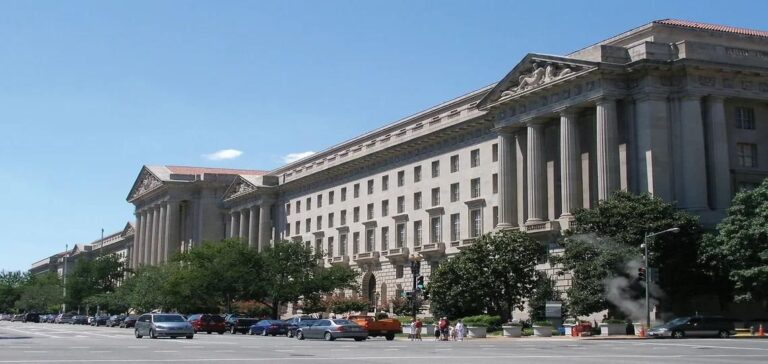U.S. power plant owners warned the Biden administration on Tuesday that its sweeping plan to reduce carbon emissions from the electricity sector was unworkable. In their view, it relies too heavily on expensive technologies that have yet to prove themselves on a large scale.
IEE resistance to EPA’s carbon plan vision: Challenges for the US climate agenda
The Edison Electric Institute (EEI), one of the world’s leading utility trade groups, has asked the U.S. Environmental Protection Agency (EPA) to review proposed standards for power plants. They depend on the widespread commercial availability of carbon capture and storage (CCS) and low-emission green hydrogen, adding that the agency’s vision was “not legally or technically sound”.
“The utilities are not confident that the new technologies designated by the EPA to serve as the basis for the proposed standards for new and existing fossil-fired generation will meet the performance and cost requirements within the EPA’s time frame,” the EEI said in a public comment released Tuesday, on the agency’s deadline for receiving information.
Resistance from IEE and other energy-related groups represents a potentially significant challenge to the administration’s climate agenda. U.S. President Joe Biden has set the goal of reducing net emissions from the electricity sector to zero by 2035. It is responsible for a quarter of the country’s greenhouse gases. This objective is at the heart of Washington’s commitment to an international agreement to combat global climate change. It aims to halve US greenhouse gas production by 2030.
Zero emissions: The burning issues in the EPA’s carbon plan for power plants
In May, the EPA proposed a plan that would limit for the first time the amount of carbon dioxide that power plants can emit, following the judicial overturning of previous efforts. West Virginia, which led a lawsuit against the Obama-era Clean Power Plan, also said it and 20 other states opposed the rule because the standards would leave coal-fired plant operators no choice but to shut down.
The proposed limits for new and existing power plants assume the existence of CO2 capture and storage technology that can siphon CO2 from a power plant stack before it reaches the atmosphere, or the use of hydrogen as a fuel. The EPA said that last year’s passage of the Inflation Reduction Act, which subsidizes these technologies, makes them cost-effective and viable. Environmental groups Clean Air Task Force and Natural Resources Defense Council said the proposal “provides generous lead times for implementation and compliance, and would not cause reliability problems if finalized”.
Industry is particularly concerned about the standards proposed for existing natural gas power plants, believing that they would find it difficult to adapt these facilities to CCS or hydrogen due to space constraints and other limitations. PJM Interconnection, the largest power grid operator in the USA, along with three other operators serving a total of 154 million customers, have expressed concern about a scenario where the numerous retirements of dispatchable generation would not be compensated in time by the widespread commercialization of the necessary technologies.
Cracks in the EPA’s carbon plan: Challenges and concerns from players in the electricity industry
In a joint statement, the grid operators urged the EPA not to adopt the plan until it had examined in detail its impact on power grid reliability, highlighting its “chilling effect” on investments to maintain existing dispatchable generation units. The EPA’s plan would require existing large gas-fired power plants that operate at least 50% of the time to install a carbon capture system by 2035, or to use 30% hydrogen by 2032. The IEE asked the agency to “repropose or significantly supplement” the proposed rules for existing gas-fired power plants.
One investor-owned utility, Baltimore-based Constellation (CEG.O), distanced itself from the IEE’s position and said it supported the EPA’s proposed guidelines. However, the company has made it clear that it is working to improve the rule. The National Rural Electric Cooperative Association, which represents 900 member-owned utilities, asked the EPA to withdraw the proposed rule, saying it would compromise reliability and affordability, said CEO Jim Matheson.
Unions, the United Mine Workers of America and the International Brotherhood of Electricity Workers, also called on the EPA to review the settlement and criticized its reliance on CSC, saying it put jobs at risk. The EPA had drawn up the proposal taking into account the constraints imposed by the Supreme Court the previous year, following its ruling that the Obama-era Clean Power plan had overstepped the mark in forcing a system-wide transition from fossil fuels to renewables.






















